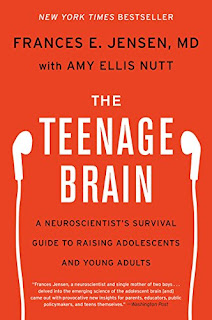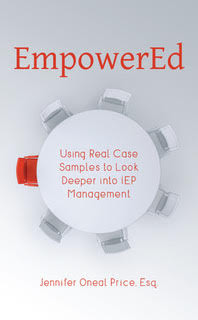REVIEW of THE TEENAGE BRAIN by FRANCES E. JENSEN & AMY ELLIS NUTT
THE TEENAGE BRAIN: A NEUROSCIENTIST'S SURVIVAL GUIDE TO RAISING ADOLESCENTS AND YOUNG ADULTS
Frances E. Jensen, Amy Ellis Nutt
Harper Paperbacks
January 2016
SUMMARY (from the publisher)
Frances E. Jensen, Amy Ellis Nutt
Harper Paperbacks
January 2016
SUMMARY (from the publisher)
Dr. Frances E. Jensen is chair of the department of neurology in the Perelman School of Medicine at the University of Pennsylvania. As a mother, teacher, researcher, clinician, and frequent lecturer to parents and teens, she is in a unique position to explain to readers the workings of the teen brain. In The Teenage Brain, Dr. Jensen brings to readers the astonishing findings that previously remained buried in academic journals.
The root myth scientists believed for years was that the adolescent brain was essentially an adult one, only with fewer miles on it. Over the last decade, however, the scientific community has learned that the teen years encompass vitally important stages of brain development. Samples of some of the most recent findings include:
- Teens are better learners than adults because their brain cells more readily "build" memories. But this heightened adaptability can be hijacked by addiction, and the adolescent brain can become addicted more strongly and for a longer duration than the adult brain.
- Studies show that girls' brains are a full two years more mature than boys' brains in the mid-teens, possibly explaining differences seen in the classroom and in social behavior.
- Adolescents may not be as resilient to the effects of drugs as we thought. Recent experimental and human studies show that the occasional use of marijuana, for instance, can cause lingering memory problems even days after smoking, and that long-term use of pot impacts later adulthood IQ.
- Multi-tasking causes divided attention and has been shown to reduce learning ability in the teenage brain. Multi-tasking also has some addictive qualities, which may result in habitual short attention in teenagers.
- Emotionally stressful situations may impact the adolescent more than it would affect the adult: stress can have permanent effects on mental health and can to lead to higher risk of developing neuropsychiatric disorders such as depression.
Dr. Jensen gathers what we’ve discovered about adolescent brain function, wiring, and capacity and explains the science in the contexts of everyday learning and multitasking, stress and memory, sleep, addiction, and decision-making. In this groundbreaking yet accessible book, these findings also yield practical suggestions that will help adults and teenagers negotiate the mysterious world of adolescent development.
REVIEW
I love a good how-to parenting book, but this one offers more than the garden variety, and that's what makes it so compelling and helpful. Jensen raised two boys, and they've successfully lived through their teenage and young adult years, so that makes her a reliable source already. But she's also a brain researchers and clinician, and she has the scientific method in her hip pocket at all times, so this makes her doubly reliable in my book.
What I found to be really helpful is learning about what's going on in teenage brain development. I've watched my kids pick up on new information and remember it ten times better than I can. Now I understand why they learn so well and so quickly. Their brain cells are more adaptable than mine are, so that information integrates and stores away more effectively. Unfortunately, this adaptability also makes them much more subject to addiction.
The sections about marijuana and alcohol were fascinating as well, and they gave me interesting information and case studies that I can share with my kids and other teenagers in my life. Some of the stories in this section are heart-wrenching, and I'm sure that's why they were chosen. The research shows that real, lifelong damage can be done to teenage brains in a relatively short amount of time.
I also appreciated the section about helping teens to study well. There are so many distractions these days, and studying often takes a backseat to the endless entertainment available on the Internet. Being able to explain the downsides of multitasking and the upsides of sitting down in a predictable, clean place to study are very helpful to me as a parent.
If you have children, I highly recommend this book. But even if you don't, you have a brain. And this is an excellent book for helping you to understand it.


Comments
Post a Comment